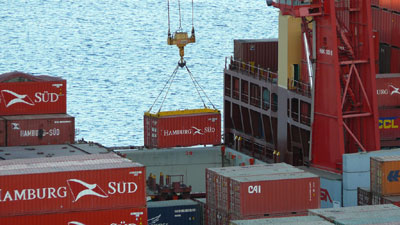New ECLAC Studies on Regional Trade
Photo: Carlos_Y., Flickr
The Economic Commission for Latin America and the Caribbean (ECLAC) has launched two publications through its Division for International Trade and Integration, which cover areas relating to the development of foreign trade in the region over recent years.
The Manual on foreign trade and trade policy. Basic concepts, classifications and indicators of position and growth, compiled by the experts José Durán Lima and Mariano Alvarez, is a summary of basic concepts, methodologies, analytical variables and indicators which are used in the study of international trade patterns.
It provides definitions of basic concepts in order to present more in-depth concepts from the analytic basis for trade at a later stage. It also examines the concepts of tariff and non-tariff protection, the link between production and trade, and the main types of international trade and their different analytical uses.
According to the authors, the objective of the document is to provide substantive and technical support to government officials, negotiators and/or decision makers in political, business and academic fields.
The document Effects of trade policy measures applied in Latin America on regional and extraregional trade analyses protectionist measures applied by various countries following the crisis of 2008.
The authors José Durán Lima, María Inés Terra and Dayna Zaclicever examine the trade policy measures (tariff and non-tariff) adopted by the countries in Latin America and the Caribbean during the global crisis, and they quantitatively analyse their effects on the main macroeconomic variables (level of activity, foreign trade, wellbeing, employment, factorial distribution of income).
They also analyse the effects of other measures applied in this situation, which range from measures focused on extraregional trade (maintaining the status quo in intraregional preferences), to more extreme cases of trade retaliation or complete intraregional trade liberalization.
They conclude that intraregional trade arenas should be preserved, particularly in times of crisis, and that the proliferation of indiscriminate protectionist measures sharpen the adverse effects of international crisis.
Both publications are available in Spanish and can be downloaded free of charge from the ECLAC website, following the links.
More IN FOCUS
Economic Policies Must Consider Unpaid Work of Women
ECLAC
Analyses Competitiveness and Social Inclusion in Agriculture
| One of the documents is a manual on foreign trade and trade policy, which shows basic concepts and methodologies used to study international trade. | |
| The other publication analyses the effects of protectionist measures on foreign trade,
which were applied by various countries following the crisis of 2008. |
|
